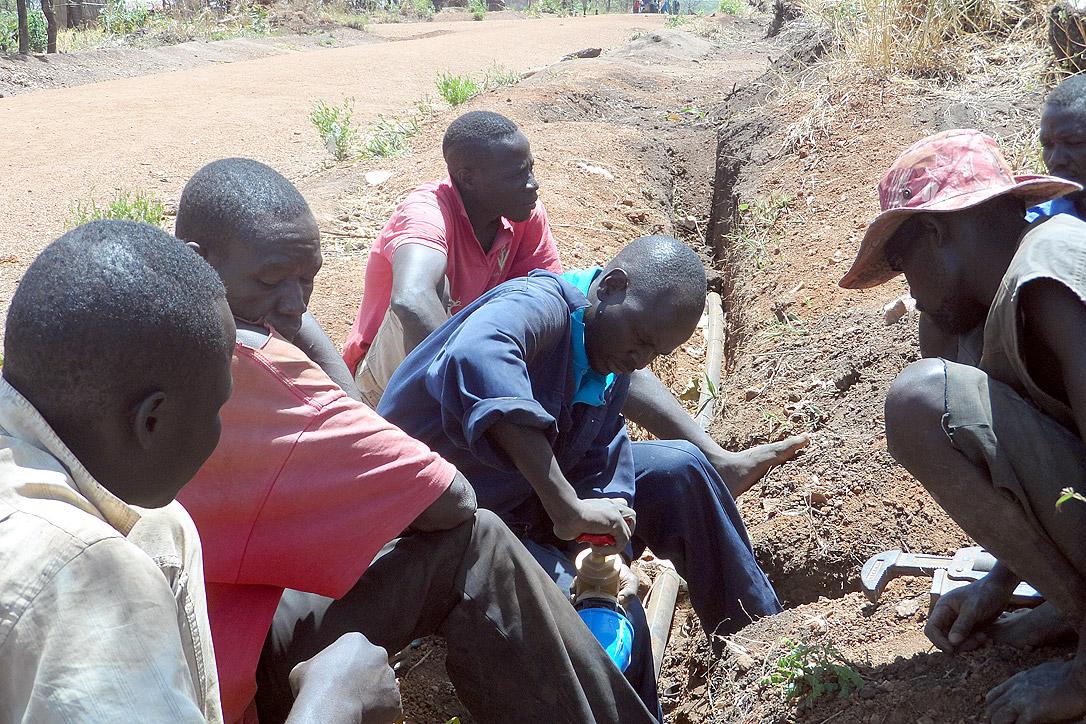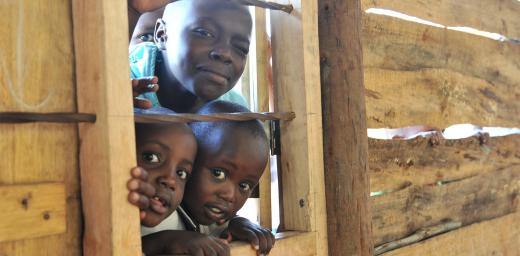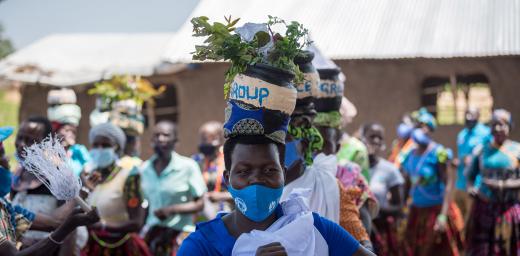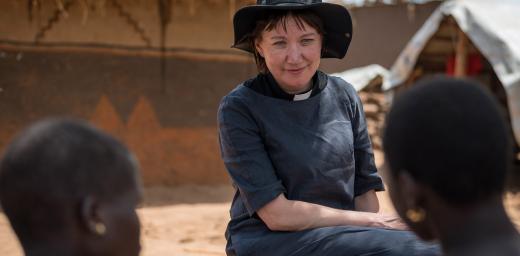The Guardians of Clean Water

LWF water technicians fix a pipe in Ayilo2 refugee camp, Adjumani district, Uganda. Photo: LWF Uganda
How Borehole Committees Regulate Water Supply in Uganda
(LWI) – “We no longer need to fetch water from the murky pond you passed on the way here,” Habyara says. “Now, our children are healthier, and no longer have intestinal worms or skin afflictions from water exposure”.
Until December 2014, the murky pond Habyara refers to was the only place Congolese refugees in his community of Rwamwanja settlement, Uganda could get water from. “The water we collected and consumed was unsafe,” Jean adds. Jean and Habyara fed the civil war in Congo. They are now living in Ntenungi Zone, in the Rwamwanja refugee settlement in Western Uganda. As president and secretary of their local committee they are taking care of the new borehole built by The Lutheran World Federation (LWF) in December of 2014. The borehole, sponsored by BPRM and implemented by LWF tends to the needs of individuals and households.
The community has taken charge of the borehole. Each member of the community contributes 500 Ugandan Shillings (UGX) per month ($0.15 US) to the committee in case of needs for repair or maintenance. Innocent, the committee’s vice president, recalls that they recently paid him 60,000 UGX for a technician to repair the borehole. The committee however wants to train people in the local community to fix boreholes so that they can do it themselves rather than having to call for assistance from outside.
Borehole or Boiled Water
Along with the technical construction of boreholes comes awareness raining activities in the communities. Village Health Teams (VHT) inform people of the risks attached to consuming standing waters as from the pond nearby. Communities are strongly encouraged to boil the water they collect if they have absolutely no alternatives. Each VHT covers 60 households, depending on community size there are up to ten VHT in a community.
A few kilometers away, Mama Sidona is guarding her source of clean drinking water. “This is the best water available form town,” she says. “My home is just over that hill over there and before this water point was available I had to walk more than one kilometer every day to fetch water for cooking, drinking and washing in the household”.
The water point experiences interesting dynamics on a daily basis, as it is shared by the Congolese refugees and the Ugandan host community alike. The committee in charge of borehole maintenance was comprised of members from both host and refugee community. But since the two Congolese members left, Mama Sidona has become the focal point for Congolese and Ugandans alike.
Mama Sidona, referred to as such because of her multitude of grown children, is the treasurer of the local borehole committee. In addition to her treasurer, farming and herder responsibilities, the Ugandan woman takes care of nine grandchildren who are currently attending Ntenungi primary school where the borehole is located. A good mediator and natural born leader, she is able to enforce rules that everyone needs to abide by if they don’t want to lose their water privileges. It is her who organizes the line in front of the borehole and remains to inspect that no one are skipping ahead, which is the most common reason for dispute.
Asked why they are taking responsibility for their borehole, Mama Sidona, Jean and Habyara give similar reasons. Although they come from different communities, they share the dream of purchasing more animals to provide for their families with farming. Water is life, for all of them.
(Contribution by Gilles Ouedraogo, LWF Uganda)





